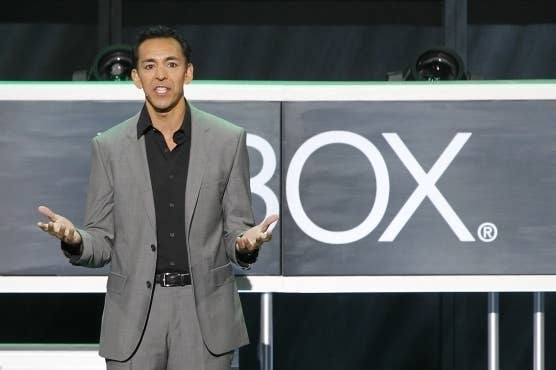Microsoft: "We believe the digital world is better"
Xbox marketing boss Yusuf Mehdi claims that core backlash is "expected" during difficult transition
Microsoft's Yusuf Mehdi believes that the backlash against the Xbox One is an expected part of the transition into the digital world.
Speaking to Ars Technica, the chief marketing and strategy officer for Xbox indicated that Microsoft was prepared for negativity from the core audience. The Xbox One is a different kind of console to those before it, and the downside is that the benefits are not immediately apparent to long-standing gamers.
"We're trying to do something pretty big in terms of moving the industry forward for console gaming into the digital world," Mehdi said. "We believe the digital world is the future, and we believe digital is better.
"This is a big change. Consumers don't always love change, and there's a lot of education we have to provide to make sure that people understand."
"This is a big change. Consumers don't always love change, and there's a lot of education we have to provide to make sure that people understand"
As examples, Mehdi pointed to the ability to access an entire game library by logging in on a different console, or sharing a library with ten family members. These benefits will be present at launch, but the Xbox One will be malleable enough to evolve and change quickly.
"As you go into a digital world, what's happening is publishers are choosing to have different business models, and consumers are saying 'Hey, if I can't resell the title, provide me a different way to get value to get into your game.' And we think the market will be efficient in finding good models that work for consumers."
Ars Technica put it to Mehdi that those new models might include Netflix-style buffet services or digital game rentals. "Sure," Mehdi replied. "It could be a variety of ways."
Mehdi also addressed the Xbox One's restrictions around the resale of used games. Microsoft wasn't reacting to publisher pressure, he said,; rather, it was striking a balance between the interests of every part of the market, with the needs of the consumer, "first and foremost."
"Within that, we've tried to optimise, and I think we've found a great balance across all of those dimensions," he said. "But there are tradeoffs. We do want to support everyone in that system, beginning with the consumer. But we want publishers to get paid for the great IP they work on. We want retailers to be able to drive and sell our products and make a profit. So we are trying to balance across all those."









